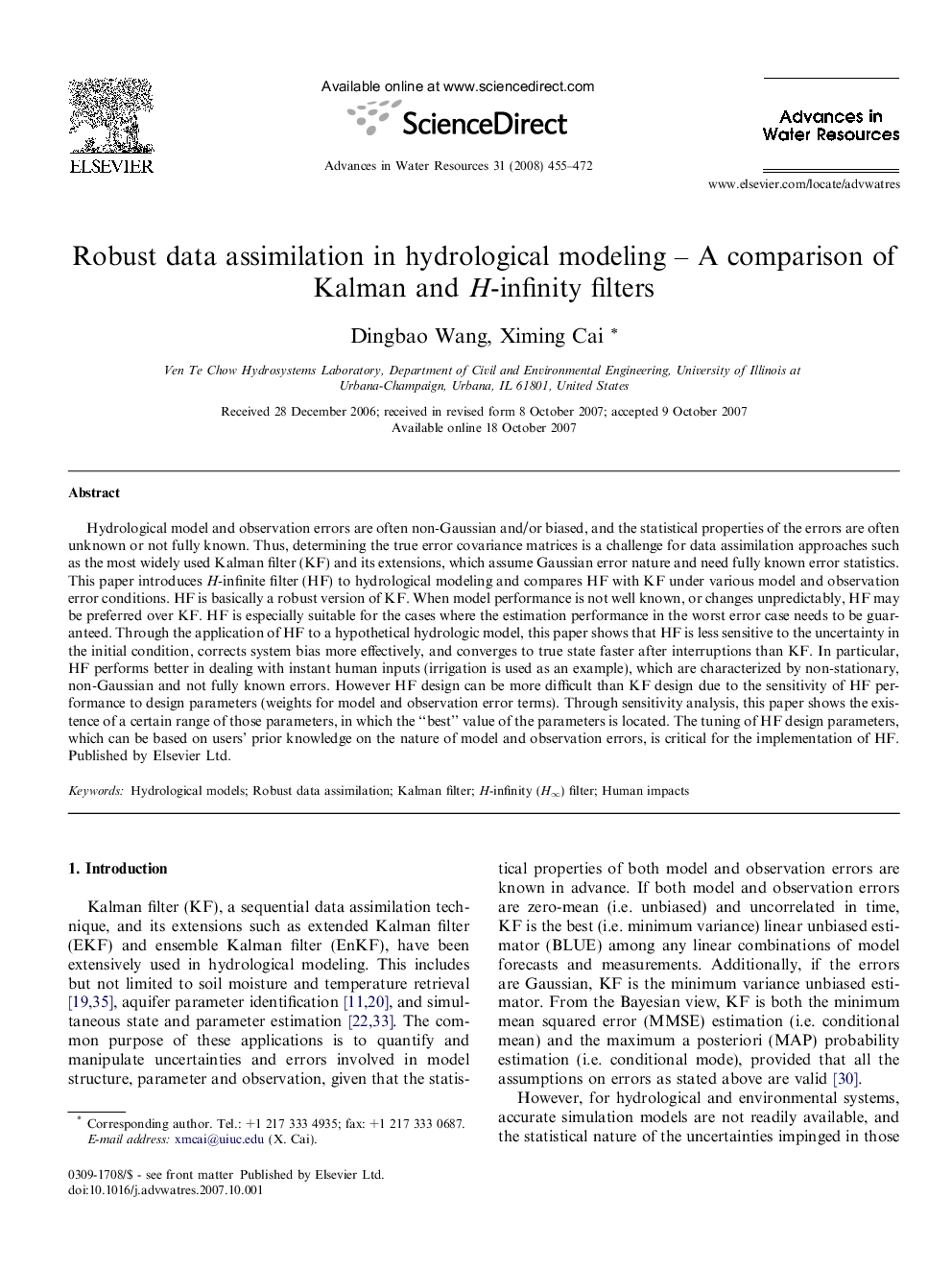| Article ID | Journal | Published Year | Pages | File Type |
|---|---|---|---|---|
| 4526592 | Advances in Water Resources | 2008 | 18 Pages |
Hydrological model and observation errors are often non-Gaussian and/or biased, and the statistical properties of the errors are often unknown or not fully known. Thus, determining the true error covariance matrices is a challenge for data assimilation approaches such as the most widely used Kalman filter (KF) and its extensions, which assume Gaussian error nature and need fully known error statistics. This paper introduces H-infinite filter (HF) to hydrological modeling and compares HF with KF under various model and observation error conditions. HF is basically a robust version of KF. When model performance is not well known, or changes unpredictably, HF may be preferred over KF. HF is especially suitable for the cases where the estimation performance in the worst error case needs to be guaranteed. Through the application of HF to a hypothetical hydrologic model, this paper shows that HF is less sensitive to the uncertainty in the initial condition, corrects system bias more effectively, and converges to true state faster after interruptions than KF. In particular, HF performs better in dealing with instant human inputs (irrigation is used as an example), which are characterized by non-stationary, non-Gaussian and not fully known errors. However HF design can be more difficult than KF design due to the sensitivity of HF performance to design parameters (weights for model and observation error terms). Through sensitivity analysis, this paper shows the existence of a certain range of those parameters, in which the “best” value of the parameters is located. The tuning of HF design parameters, which can be based on users’ prior knowledge on the nature of model and observation errors, is critical for the implementation of HF.
